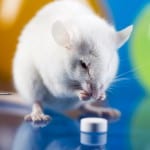Welcome back to this week’s edition of the News Summary blog. This blog post will cover the highlights in medical and health news from the 29th of August to the 4th September.
This week has seen the announcement of further junior doctor’s strikes, the publication of research that suggests that alcoholics could be treated with an enzyme to prevent addiction and a study that suggests our modern lifestyle could be increasing the incidence of cancer in children.
5-day strike planned by junior doctors

This week The British Medical Association announced a further four five-day walkouts. The four strikes will take place between now and mid-December and are over the new junior doctor contract, which is being imposed.
The announcement has been met with mixed reactions from the medical profession, The Academy of Medical Royal Colleges has said that it was “disappointed” as it felt the strikes were disproportionate. There are concerns that the strike action may negatively impact patient care as well as the profession.
However, others in the profession such as Professor Neena Modi, the president of the Royal College of Paediatrics support the strike action and are confident that consultants and other non-striking doctors will ensure that patient’s needs are met.
The BMA junior doctor leader, Dr Ellen McCourt has asked for the government to call off the imposition of the contract to stop the strike action going ahead. Junior doctors are concerned over the new contract as although the government want to create a seven-day NHS, it has no answer as to how it will either staff or fund the extra weekend care.
Alcoholism could be fought with medical drugs

Research carried out in Sweden on rats suggests that low levels of an enzyme could trigger addictive behaviour linked to alcoholism. Low levels of enzyme PRDM2 that occurs naturally in the brain is thought to cause addictive behaviour.
Studies conducted on rats showed that there were lower levels of PRDM2 in the frontal lobe of rats that had previously been made to be dependent on alcohol. The rats showed signs of addiction as they continued to drink despite it causing physical stress in the form of either electric shocks or the alcohol being mixed with bitter tasting quinine.
When researchers prevented the rats from producing the enzyme PRDM2 they developed addiction despite not being previously exposed to alcohol. It is hoped that the research could be used to produce a medicine to help humans’ combat addiction alongside current treatments such as group therapy. The next step is for the research to be simulated in humans to determine whether those suffering with addiction do have low levels of PRDM2.
Increasing numbers of children diagnosed with cancer

The number of children diagnosed with cancer has risen by 40 percent over 15 years which is thought to be due to environmental factors such as air pollution and poor diet. The conclusion was drawn from new analysis of government statistics by researchers at the charity Children with Cancer UK. They found that there were now 1,300 more cancer cases a year compared to 1998 which was the first time the data sets were published.
The rise is most applicable to those between the ages of 15 and 24 where the incidence rate is almost 16 cases per 100,000 teenagers. It is thought that some of the increase could be due to improvements in cancer diagnoses and screening but the majority is due to environmental factors.
Uploaded by Joelle on 5 September 2016
